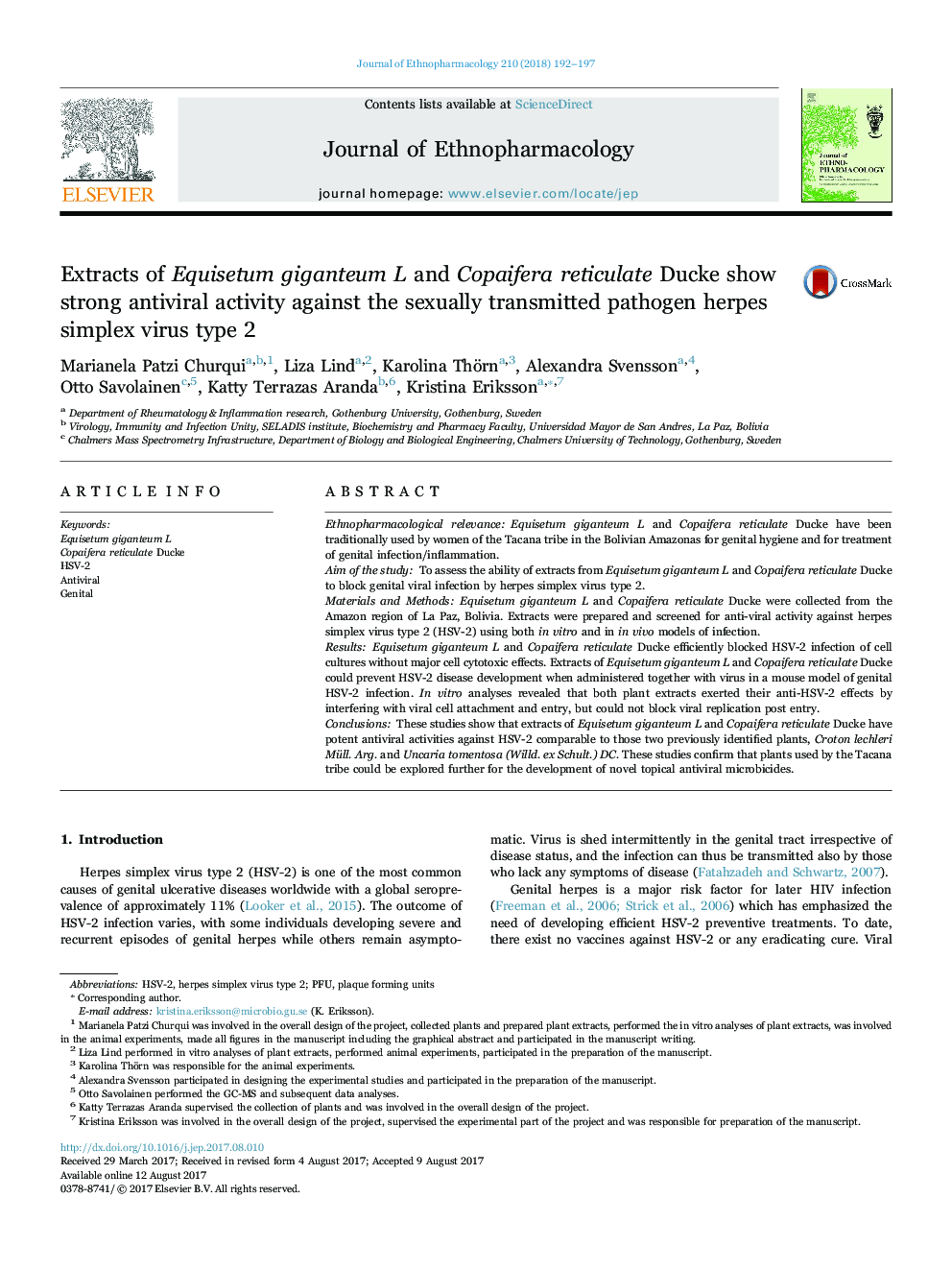| Article ID | Journal | Published Year | Pages | File Type |
|---|---|---|---|---|
| 5555939 | Journal of Ethnopharmacology | 2018 | 6 Pages |
Ethnopharmacological relevanceEquisetum giganteum L and Copaifera reticulate Ducke have been traditionally used by women of the Tacana tribe in the Bolivian Amazonas for genital hygiene and for treatment of genital infection/inflammation.Aim of the studyTo assess the ability of extracts from Equisetum giganteum L and Copaifera reticulate Ducke to block genital viral infection by herpes simplex virus type 2.Materials and MethodsEquisetum giganteum L and Copaifera reticulate Ducke were collected from the Amazon region of La Paz, Bolivia. Extracts were prepared and screened for anti-viral activity against herpes simplex virus type 2 (HSV-2) using both in vitro and in in vivo models of infection.ResultsEquisetum giganteum L and Copaifera reticulate Ducke efficiently blocked HSV-2 infection of cell cultures without major cell cytotoxic effects. Extracts of Equisetum giganteum L and Copaifera reticulate Ducke could prevent HSV-2 disease development when administered together with virus in a mouse model of genital HSV-2 infection. In vitro analyses revealed that both plant extracts exerted their anti-HSV-2 effects by interfering with viral cell attachment and entry, but could not block viral replication post entry.ConclusionsThese studies show that extracts of Equisetum giganteum L and Copaifera reticulate Ducke have potent antiviral activities against HSV-2 comparable to those two previously identified plants, Croton lechleri Müll. Arg. and Uncaria tomentosa (Willd. ex Schult.) DC. These studies confirm that plants used by the Tacana tribe could be explored further for the development of novel topical antiviral microbicides.
Graphical abstractDownload high-res image (179KB)Download full-size image
